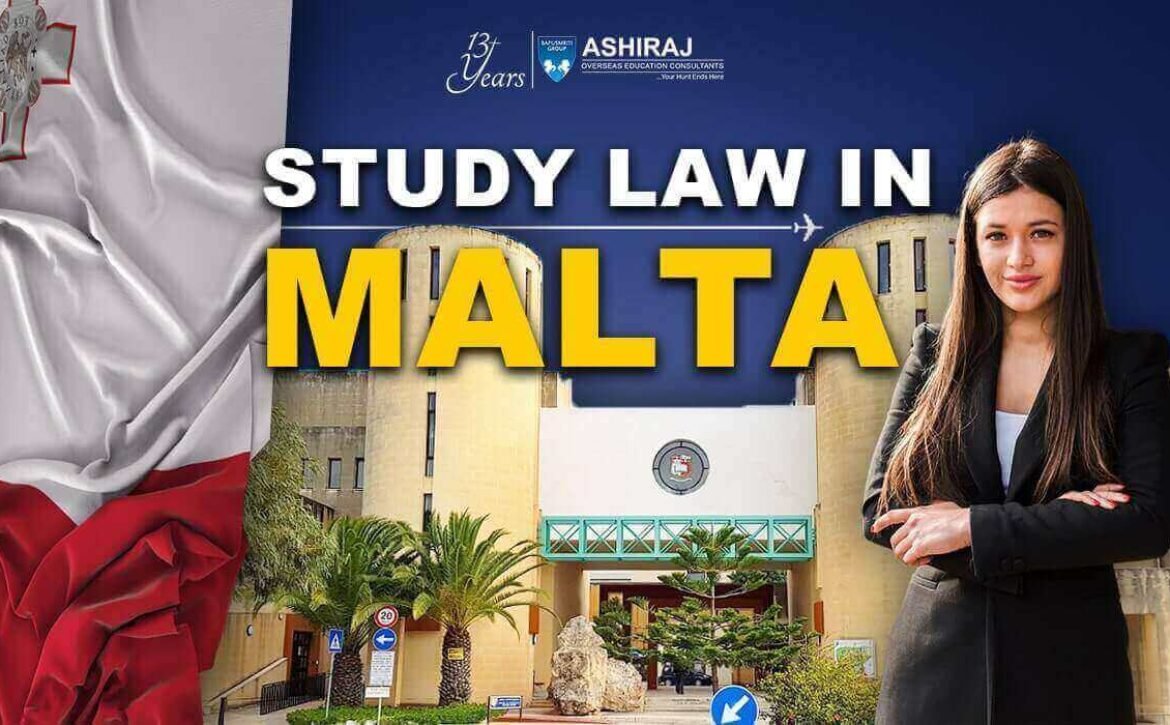
Law in Malta
Law in Malta encompasses a complex and comprehensive legal system that governs various aspects of Maltese society. Rooted in both civil law and common law traditions, Malta’s legal framework is influenced by its historical ties to European and Mediterranean legal systems. The legal system in Malta is characterized by statutes, regulations, case law, and customary practices, providing a robust foundation for the rule of law in the country. Malta’s legal system is administered through a hierarchy of courts, including the Constitutional Court, Court of Appeal, and Court of Magistrates, ensuring access to justice and the protection of individuals’ rights.
Law in Malta plays a crucial role in shaping the country’s governance, economy, and social dynamics. With a focus on upholding principles of justice, fairness, and equality, Malta’s legal framework regulates diverse areas such as business and commercial law, family law, criminal law, and human rights. Additionally, Malta’s legal system is responsive to the evolving needs of society, with ongoing reforms and adaptations to meet contemporary challenges. Understanding the intricacies of law in Malta is essential for individuals, businesses, and organizations operating within its jurisdiction, as compliance with legal requirements is paramount for maintaining stability and fostering development.
Why to Study Law in Malta?
- Unique Legal System: Malta boasts a legal system that combines elements of civil law and common law traditions, providing students with a diverse and enriching learning experience.
- EU Membership: As a member of the European Union, studying law in Malta offers insights into EU law and regulations, enhancing students’ understanding of international legal frameworks.
- International Recognition: Degrees obtained from Maltese law schools are internationally recognized, opening doors to a wide range of career opportunities both within Malta and abroad.
- Multicultural Environment: Malta’s strategic location in the Mediterranean makes it a melting pot of cultures and legal perspectives, offering students exposure to diverse viewpoints and approaches to law.
- English Language: With English being one of Malta’s official languages, studying law in Malta is particularly appealing to international students seeking a quality legal education in English.
- Practical Experience: Many law programs in Malta emphasize practical learning, providing students with opportunities for internships, moot court competitions, and real-world case studies.
- Robust Legal Infrastructure: Malta’s legal infrastructure is well-developed, offering students access to modern facilities, libraries, and research resources to support their academic endeavors.
Studying law in Malta provides a unique opportunity to immerse oneself in a dynamic legal environment while gaining invaluable skills and knowledge applicable across various jurisdictions. With its rich legal heritage and commitment to excellence, Malta is an ideal destination for aspiring legal professionals.
Top Universities to Study Law in Malta
University | QS World University Rankings 2023 | Type of University | Average Annual Fees | Programs Offered |
University of Malta | 601-650 | Public | €1,000 – €3,000 | LL.B. in Maltese Law, LL.B. in English |
per year | and European Law, LL.D. | |||
(Doctor of Laws) | ||||
Malta College of Arts, | Not Ranked | Public | €3,000 – €5,000 | LL.B. (Hons) in Law (with various |
Science and Technology | per year | specializations) | ||
American University of | Not Ranked | Private | €5,000 – €7,000 | LL.B. (Hons) in Law |
Malta | per year | |||
European University | Not Ranked | Private | €6,000 – €8,000 | LL.B. (Hons) in Law, LL.M. in |
of Malta | per year | International Business Law, LL.M. in | ||
European Union Law | ||||
Global College Malta | Not Ranked | Private | €4,000 – €6,000 | LL.B. (Hons) in Law |
Studying law in Malta offers a diverse range of options with institutions catering to different preferences and budgets. The University of Malta, a public institution, provides affordable education with programs available in both Maltese and English Law, ensuring accessibility for local and international students. Malta College of Arts, Science and Technology (MCAST) offers specialized LL.B. programs at moderate fees, focusing on practical skills and industry relevance. For those seeking private education, American University of Malta and European University of Malta offer LL.B. programs with a focus on international perspectives, albeit at slightly higher costs. Global College Malta, another private institution, provides a cost-effective option for students aiming for a comprehensive legal education. With various options available, aspiring legal professionals can find a suitable program tailored to their academic and financial needs in Malta’s vibrant legal landscape.
Course Curriculum for Law in Malta
- Foundational Courses: Law in Malta begins with foundational courses covering legal principles, theories, and concepts essential for understanding the legal system.
- Core Subjects: The curriculum typically includes core subjects such as constitutional law, criminal law, contract law, and tort law, providing students with a comprehensive understanding of key legal areas.
- Specialization Options: Students often have the opportunity to specialize in areas such as international law, maritime law, human rights law, or corporate law, allowing them to tailor their studies to their interests and career goals.
- Practical Training: Many programs in Malta emphasize practical training through moot court competitions, internships, and legal clinics, enabling students to apply theoretical knowledge in real-world scenarios.
- Legal Research and Writing: Courses in legal research and writing are integral to the curriculum, equipping students with the skills needed to conduct thorough legal research and communicate effectively in a legal context.
Law in Malta’s curriculum is designed to provide students with a well-rounded legal education that prepares them for diverse career paths in the legal profession. Through a combination of theoretical learning and practical experience, students develop the skills and knowledge necessary to navigate Malta’s legal landscape and contribute effectively to the field of law.
Eligibility Criteria & Admission Requirements for MS in Law in Malta
- Language Proficiency: Applicants must demonstrate proficiency in English through standardized tests such as IELTS or TOEFL. The minimum scores required vary depending on the institution and program.
- Academic Qualifications: Candidates typically need to hold a bachelor’s degree or its equivalent in a relevant field from a recognized institution. Academic transcripts demonstrating a strong academic record are usually required.
- Standardized Tests: Some institutions may require applicants to submit scores from standardized tests such as GRE or GMAT. These scores help assess applicants’ aptitude and readiness for graduate-level studies in law.
- Passport & Student Visa: International students must possess a valid passport and obtain a student visa to study in Malta. The visa application process may require proof of acceptance from a recognized institution and sufficient financial resources.
- Academic Certificates: Applicants must submit copies of academic certificates and transcripts, including proof of any post-secondary qualifications obtained.
- Work Experience: While not always mandatory, some programs may consider relevant work experience as part of the application process. This can include internships, volunteering, or professional experience in the legal field.
IELTS and TOEFL Scores:
Test | Minimum Score |
IELTS | 6.5 |
TOEFL | 80 |
GRE and GMAT Scores:
Test | Minimum Score |
GRE | 300 |
GMAT | 550 |
Meeting the eligibility criteria is essential for admission to law programs in Malta, ensuring that students possess the necessary skills, qualifications, and language proficiency to succeed in their studies. Aspiring law students should carefully review the requirements set forth by their chosen institutions and prepare their applications accordingly.
Documents Required for Studying Law in Malta
- Passport: A valid passport is essential for international students applying to law programs in Malta, serving as proof of identity and nationality.
- Two Letters of Recommendation (LOR): Applicants typically need to submit LORs from academic or professional referees who can attest to their skills, qualifications, and suitability for the program.
- Statement of Purpose (SOP): An SOP outlines the applicant’s academic and professional goals, reasons for choosing the program, and how it aligns with their career aspirations in law.
- Curriculum Vitae (CV): A comprehensive CV detailing the applicant’s educational background, work experience, extracurricular activities, and any relevant achievements.
- Official High School Transcripts: Transcripts from secondary education institutions providing evidence of academic performance and completion of high school education.
- Educational Certificates: Copies of educational certificates, including degrees, diplomas, or certificates obtained from previous academic institutions.
- Work Experience Certificate: If applicable, a certificate or letter verifying any relevant work experience in the legal field or other professions.
- Proof of Financial Resources: Applicants must demonstrate their ability to cover tuition fees, living expenses, and other associated costs during their studies in Malta.
Law in Malta programs require a comprehensive set of documents to assess applicants’ eligibility and suitability for admission. Aspiring students should ensure they gather all necessary documents and adhere to the requirements outlined by their chosen institutions to facilitate a smooth application process.
Admission Process for Law in Malta
- Research: Begin by researching law programs offered by universities in Malta, considering factors such as program structure, faculty expertise, and accreditation.
- Check Eligibility: Review the eligibility criteria for each program, ensuring you meet the requirements related to academic qualifications, language proficiency, and standardized test scores.
- Prepare Documents: Gather all required documents, including transcripts, certificates, standardized test scores (such as IELTS or TOEFL), letters of recommendation, statement of purpose, CV, and proof of financial resources.
- Submit Application: Complete the online application form for your chosen program, ensuring accuracy and completeness. Attach all required documents and pay any application fees.
- Await Decision: After submitting your application, await a decision from the university’s admissions committee. This process may take several weeks, so be patient.
- Receive Offer: If accepted, you will receive an offer of admission from the university. Review the offer carefully and follow any instructions provided.
- Accept Offer: Once you have decided to accept the offer, follow the instructions provided by the university to confirm your enrollment, pay any required deposits, and arrange for visa processing if applicable.
- Prepare for Arrival: Begin preparations for your arrival in Malta, including arranging accommodation, obtaining a student visa (if necessary), and familiarizing yourself with the campus and local area.
Law in Malta programs typically follow a straightforward admission process, but it’s essential to carefully follow all instructions and deadlines to ensure a smooth application experience.
“Education is the most powerful weapon which you can use to change the world.”
Nelson Mandela
Cost of Law Course in Malta
- Tuition Fees: The cost of tuition for law programs in Malta varies depending on the institution, program duration, and whether the student is an EU or non-EU citizen. On average, tuition fees for international students range from €1,000 to €8,000 per year for undergraduate programs.
- Living Expenses: Living expenses in Malta, including accommodation, food, transportation, and miscellaneous expenses, typically range from €700 to €1,000 per month. These costs may vary depending on the student’s lifestyle and accommodation choices.
- Books and Supplies: Students should budget for additional expenses such as textbooks, study materials, and other academic supplies, which may amount to a few hundred euros per academic year.
- Health Insurance: International students are required to have health insurance coverage during their stay in Malta. The cost of health insurance varies depending on the provider and coverage options chosen.
- Miscellaneous Fees: Students may incur additional fees for activities, extracurriculars, and administrative services throughout the academic year.
Overall, the cost of studying law in Malta is relatively affordable compared to other European countries, making it an attractive option for international students seeking quality legal education at a reasonable price. Law in Malta programs offer a balance of affordability and academic excellence, ensuring that students receive a valuable educational experience without breaking the bank.
Scholarships for Law Courses in Malta
Scholarship Name | Amount | Application Deadline |
Malta Government Scholarships | Full or partial tuition fees coverage, plus stipend for living expenses | Varies; typically between March and May |
University-specific Scholarships | Varies depending on institution and program; may cover tuition fees, living expenses, or both | Varies; check with individual universities for deadlines |
EU Scholarships | Full or partial funding for EU citizens studying in Malta; coverage includes tuition fees and living expenses | Varies; deadlines typically in spring or early summer |
International Organization Scholarships | Varies; may cover tuition fees, accommodation, travel, and other expenses | Varies; check with respective organizations for deadlines |
Private Sponsorships | Amount varies depending on sponsor; may cover tuition fees, living expenses, or both | Varies; application deadlines determined by sponsors |
Law in Malta programs offer a range of scholarship opportunities to help students offset the costs of their education. These scholarships may be provided by the Maltese government, universities, European Union, international organizations, or private sponsors. Applicants should carefully review eligibility criteria and application deadlines for each scholarship opportunity and submit their applications accordingly. Scholarships can significantly alleviate the financial burden of studying law in Malta, making it more accessible to students from diverse backgrounds.
Career Opportunities After Law in Malta
Job Profile | Average Salary (per annum) |
Lawyer | €25,000 – €50,000 |
Legal Counsel | €30,000 – €60,000 |
Legal Advisor | €35,000 – €70,000 |
Corporate Lawyer | €40,000 – €80,000 |
Judge | €60,000 – €100,000 |
Prosecutor | €35,000 – €70,000 |
Legal Consultant | €30,000 – €60,000 |
Legal Researcher | €25,000 – €45,000 |
Law Professor | €40,000 – €80,000 |
Human Rights Advocate | €30,000 – €60,000 |
Law in Malta offers a wide array of career opportunities for graduates. From practicing as lawyers in law firms or corporate settings to serving as legal advisors or consultants, there are diverse paths to explore. Additionally, opportunities exist within the judiciary as judges or prosecutors, providing avenues for those interested in public service and upholding the rule of law. Legal research and academia also offer rewarding career paths for those inclined towards scholarly pursuits. With competitive salaries and opportunities for advancement, pursuing a career in law in Malta can be both financially rewarding and intellectually fulfilling. Graduates can choose to specialize in various areas of law, including corporate law, human rights, or international law, depending on their interests and career aspirations.
Frequently Asked Questions About Law in Malta
Admission requirements typically include academic qualifications, language proficiency (usually demonstrated through IELTS or TOEFL scores), standardized test scores (such as GRE or GMAT), letters of recommendation, a statement of purpose, and proof of financial resources.
Yes, international students can study law in Malta. They need to meet the admission requirements set by the universities, obtain a student visa, and fulfill any other immigration requirements.
The cost varies depending on the institution, program, and the student’s nationality. On average, international students can expect to pay tuition fees ranging from €1,000 to €8,000 per year, along with living expenses.
Yes, scholarships are available for law students in Malta. These scholarships may be offered by the government, universities, international organizations, or private sponsors. They can cover tuition fees, living expenses, or both.
Malta offers a variety of law programs, including undergraduate LL.B. degrees, postgraduate LL.M. programs, and doctoral (LL.D.) programs. Specializations may include international law, corporate law, human rights law, and more.
While work experience is not always required, it can enhance an applicant’s profile. Some programs may consider relevant work experience as part of the admission process, particularly for postgraduate programs.
Graduates can pursue careers as lawyers, legal counsels, legal advisors, judges, prosecutors, legal consultants, legal researchers, law professors, and human rights advocates. They can work in law firms, corporations, government agencies, non-profit organizations, academia, and more.
The duration of a law degree varies depending on the program and level of study. An undergraduate LL.B. degree typically takes three to four years to complete, while postgraduate LL.M. programs may take one to two years.
Yes, international students are generally required to demonstrate proficiency in English through standardized tests such as IELTS or TOEFL. Minimum scores may vary depending on the institution and program.
Graduates with a law degree from Malta may be eligible to practice law in other countries, but they may need to meet additional requirements, such as passing a bar exam or completing additional qualifications recognized in that country.




